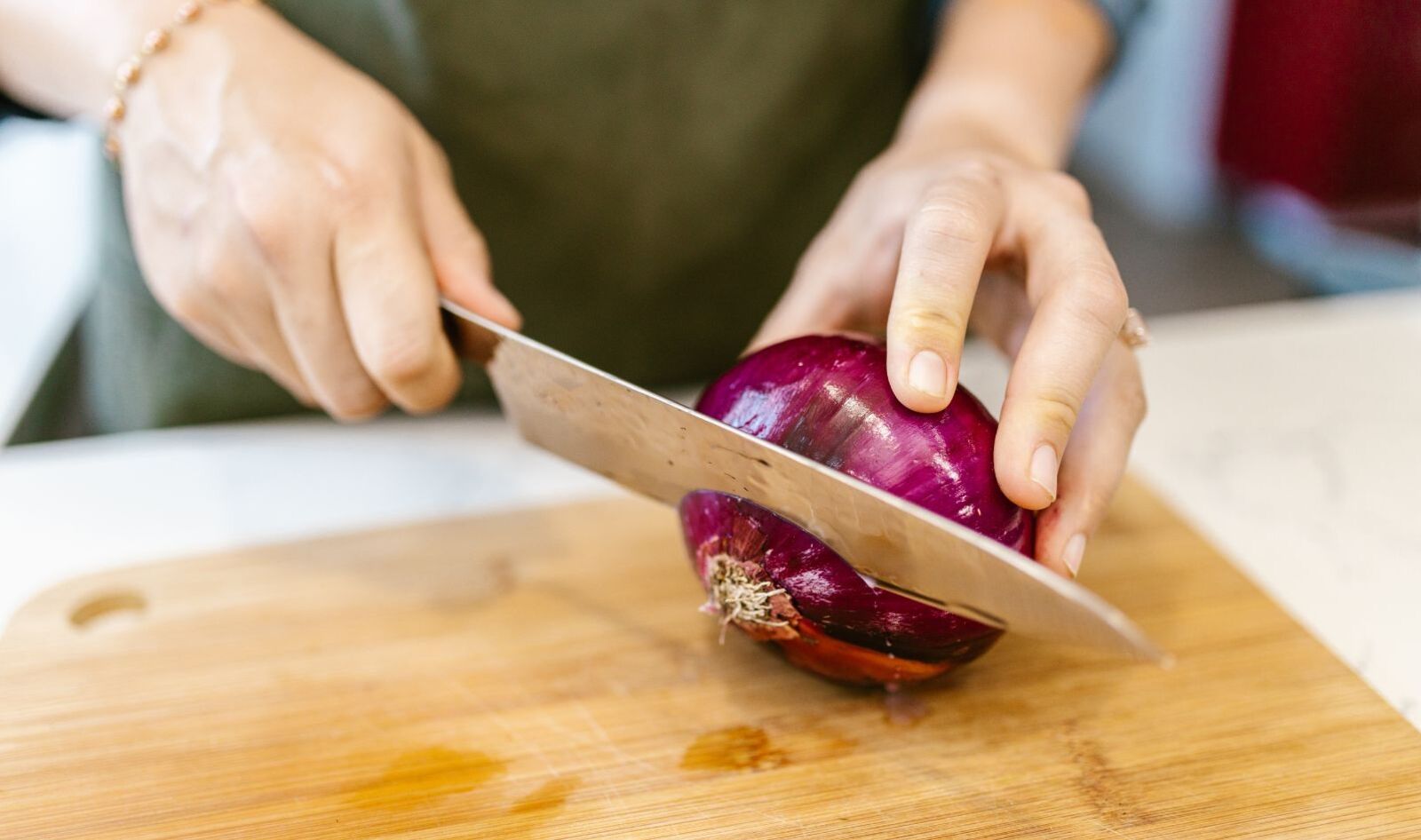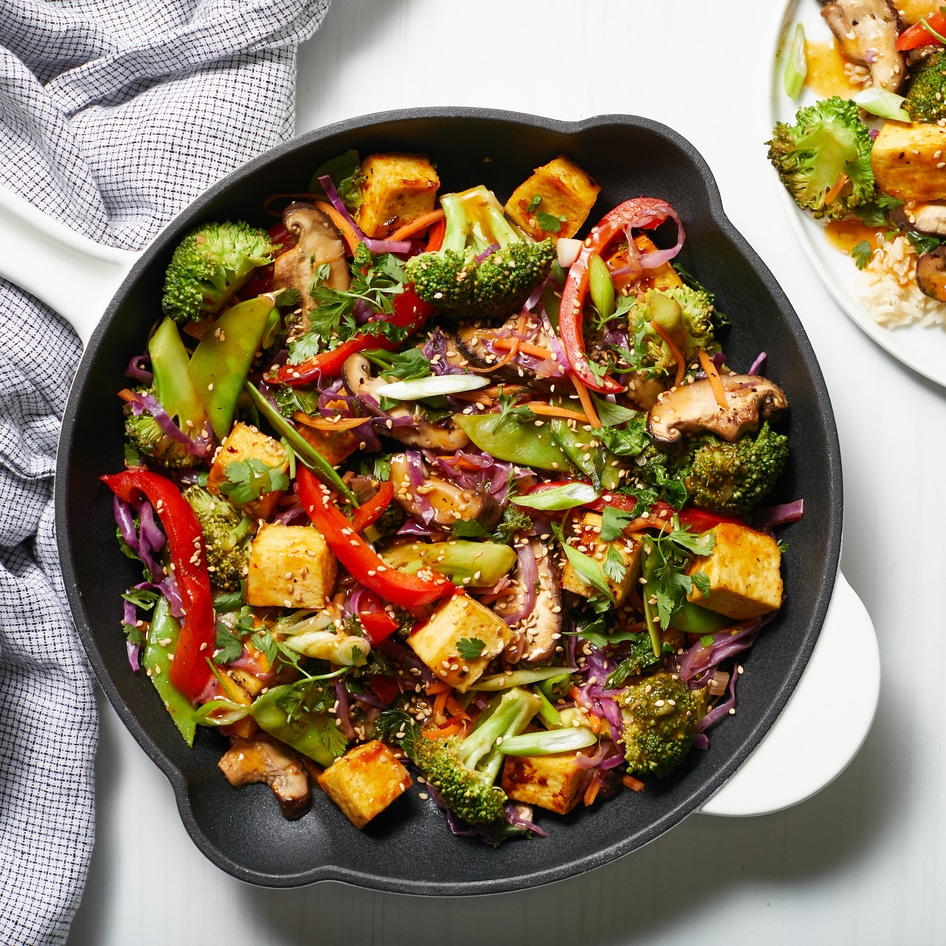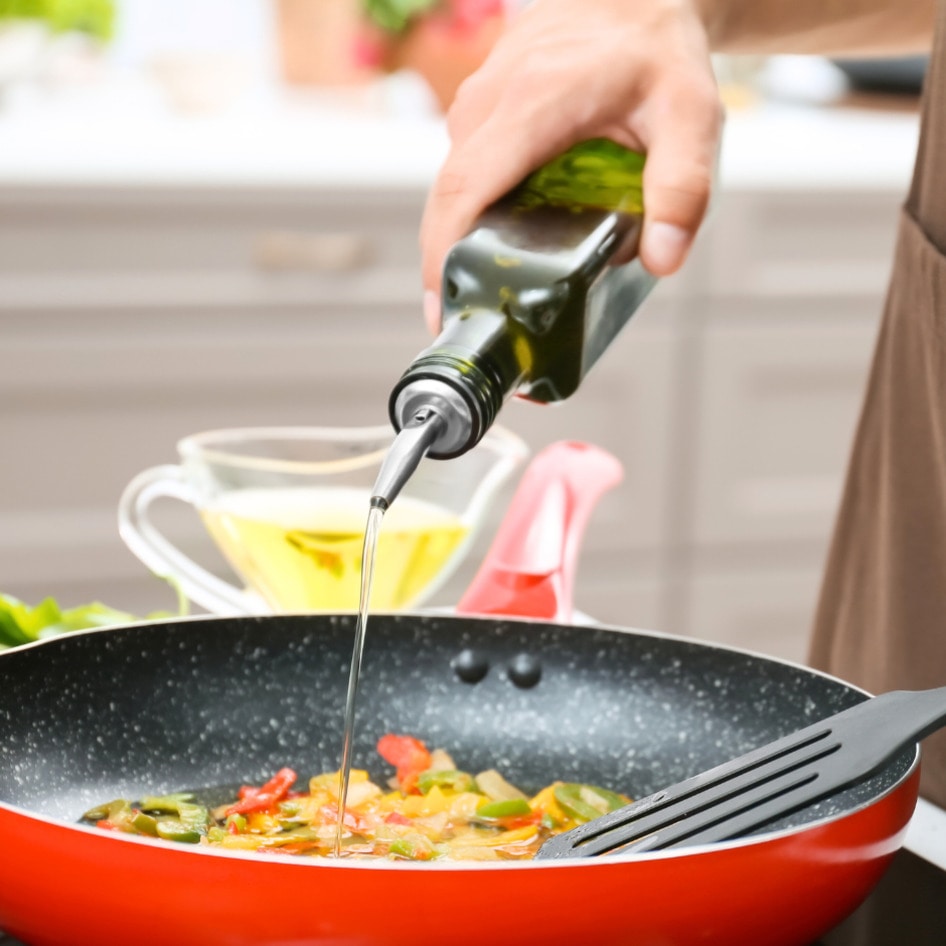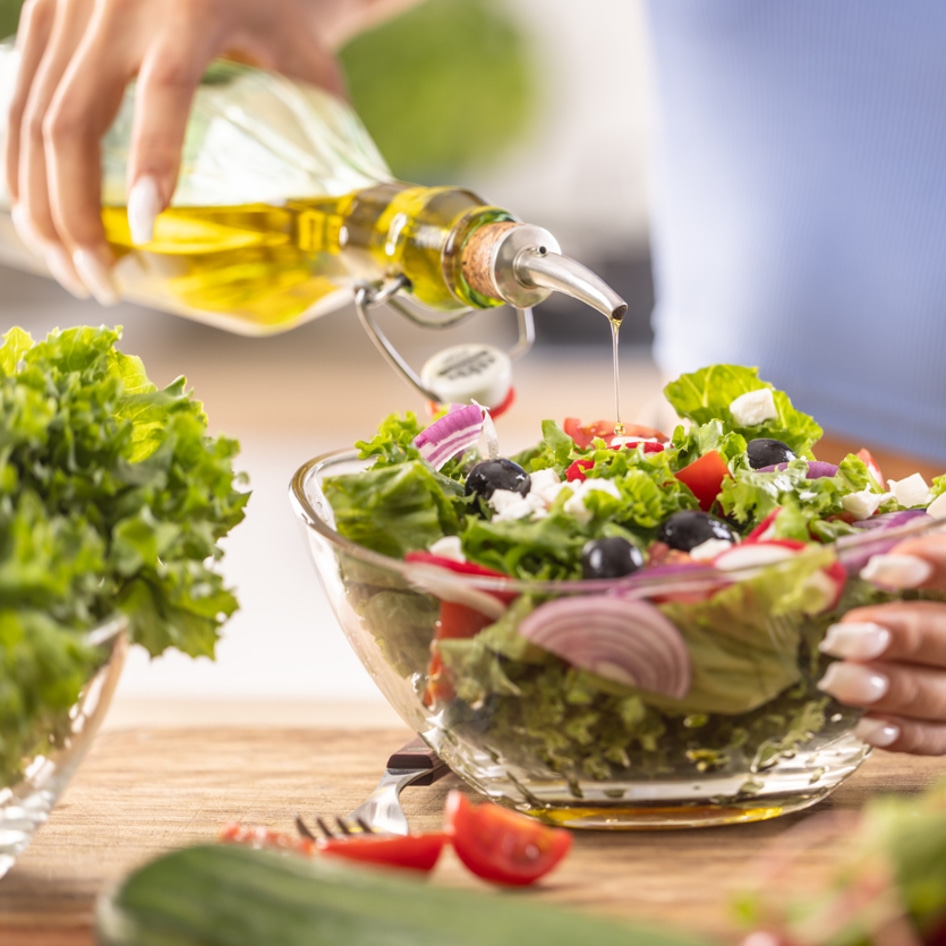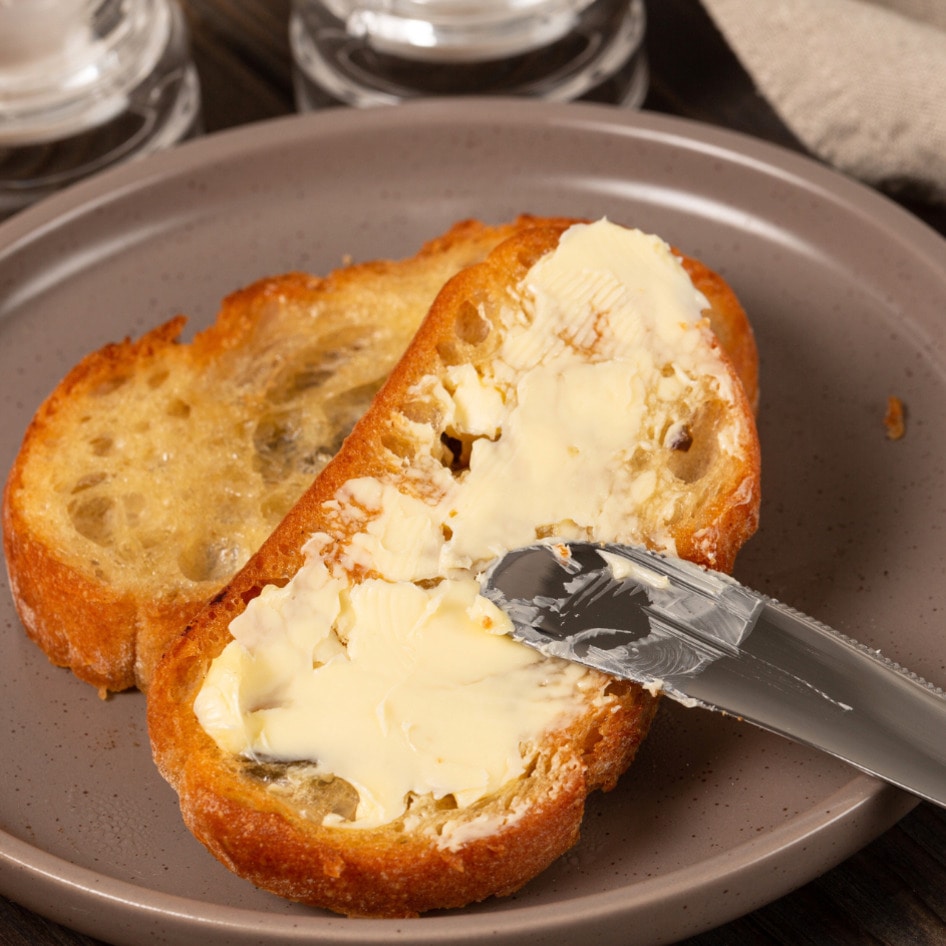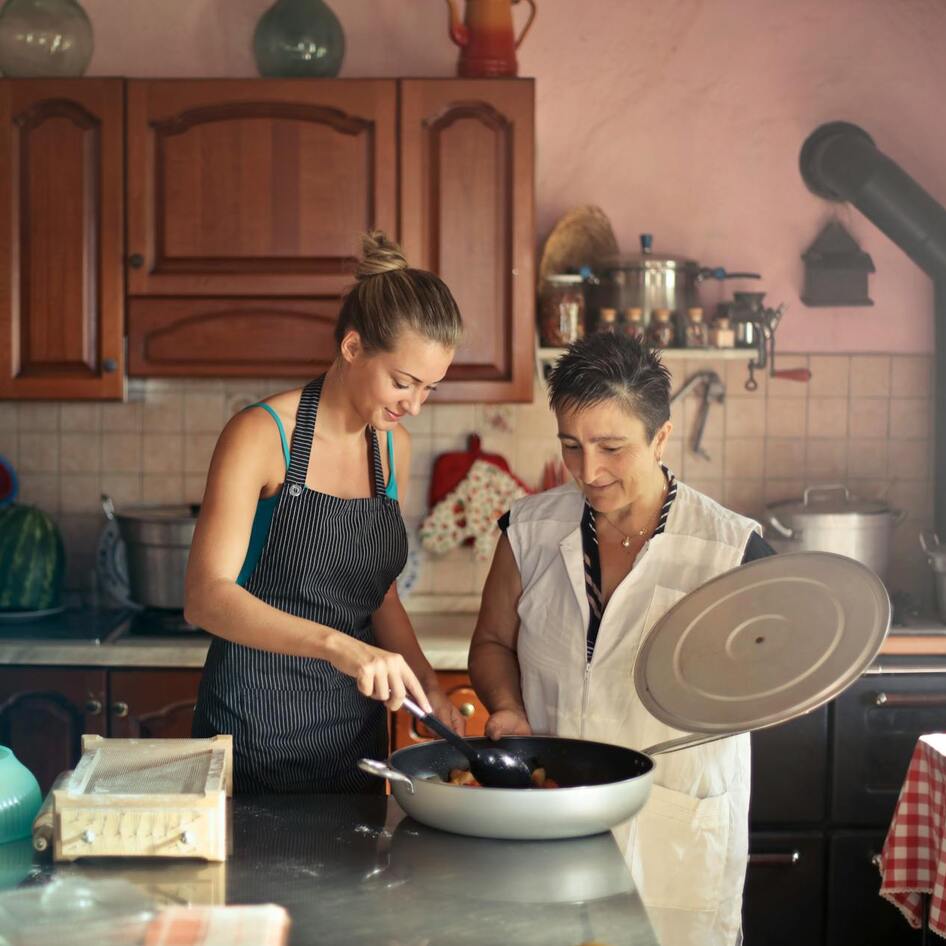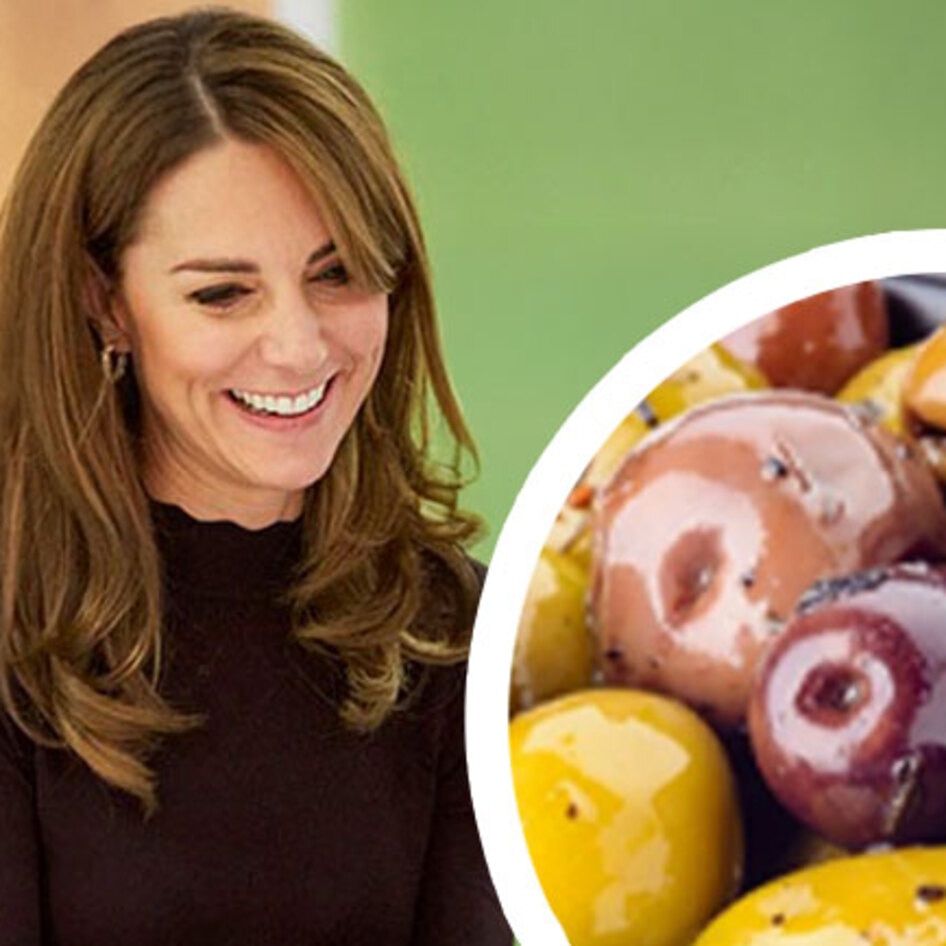From whole-cucumber salads to scallion coffee, TikTok trends often introduce creative spins on everyday ingredients, and the latest viral dish—the whole roasted onion, or “onion boil”—has captivated food enthusiasts.
This trend involves seasoning and roasting whole onions filled with butter until they are tender, sweet, and richly flavored. No complicated steps, no fancy gadgets—just good old onions, roasted to golden perfection.
Johanna Angman, RD, views the trend positively, though with some caveats. “Eating whole roasted onions as a snack or appetizer is an intriguing trend,” Angman tells VegNews. “From a health perspective, I think it has some benefits.”
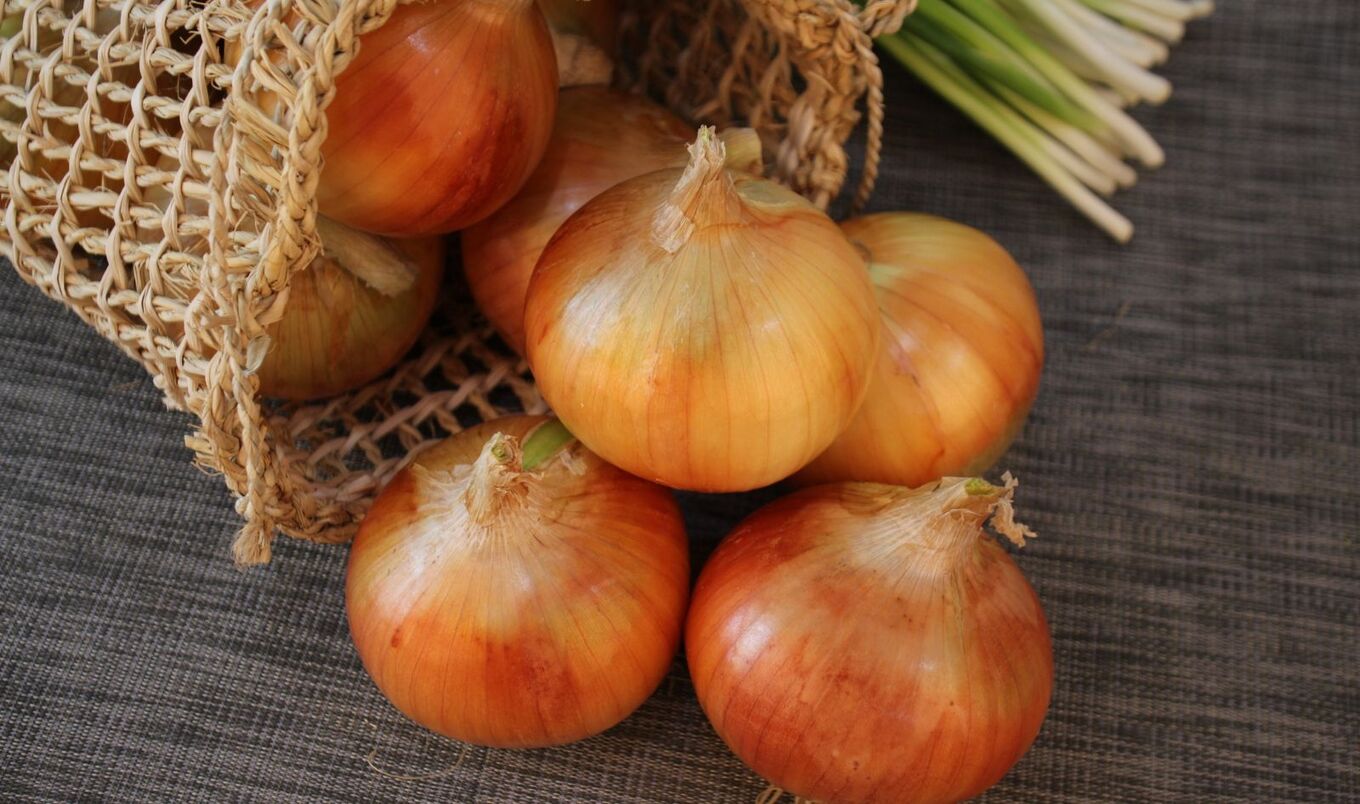 Canva
Canva
Angman notes, however, that moderation is key. “Eating large amounts could cause digestive discomfort for some, especially those sensitive to foods that can increase bloating or reflux,” she says.
The preparation also plays an essential role in determining how healthy this dish can be. “While I love seeing vegetables take center stage, the preparation really matters,” Angman says.
Whole onions get the TikTok treatment
Onions are having a moment, and it’s about time. These tear-inducing vegetables are getting the recognition they deserve, not just as the supporting cast of soups and sautés, but as the main event. Roasting brings out their sweetness, making them caramelized and rich. And, Angman explains, they come with some hefty health benefits.
“Onions are packed with antioxidants like quercetin, which helps fight inflammation, and they’re a great source of fiber and prebiotics, which support gut health,” she says.
Cooking onions by roasting enhances their natural sweetness while softening their sharpness, making them ideal for experimenting with different spices and seasonings. The choice of fat used in preparation, however, has a significant impact on the dish’s health value.
Why plant-based fats work better than butter
Traditional versions of the onion boil often use butter as the fat of choice. However, Angman recommends caution when using the dairy product. “Butter is high in saturated fats, which can raise LDL cholesterol—the ‘bad’ kind that’s linked to an increased risk of heart disease,” Angman explains. “While enjoying butter occasionally won’t necessarily harm your health, regularly using it in generous amounts might contribute to higher cholesterol levels over time.”
For those aiming to maximize health benefits, reducing butter or substituting it entirely is advisable. Angman suggests keeping an eye on portion sizes and choosing alternatives when possible to make this dish both flavorful and heart-healthy.
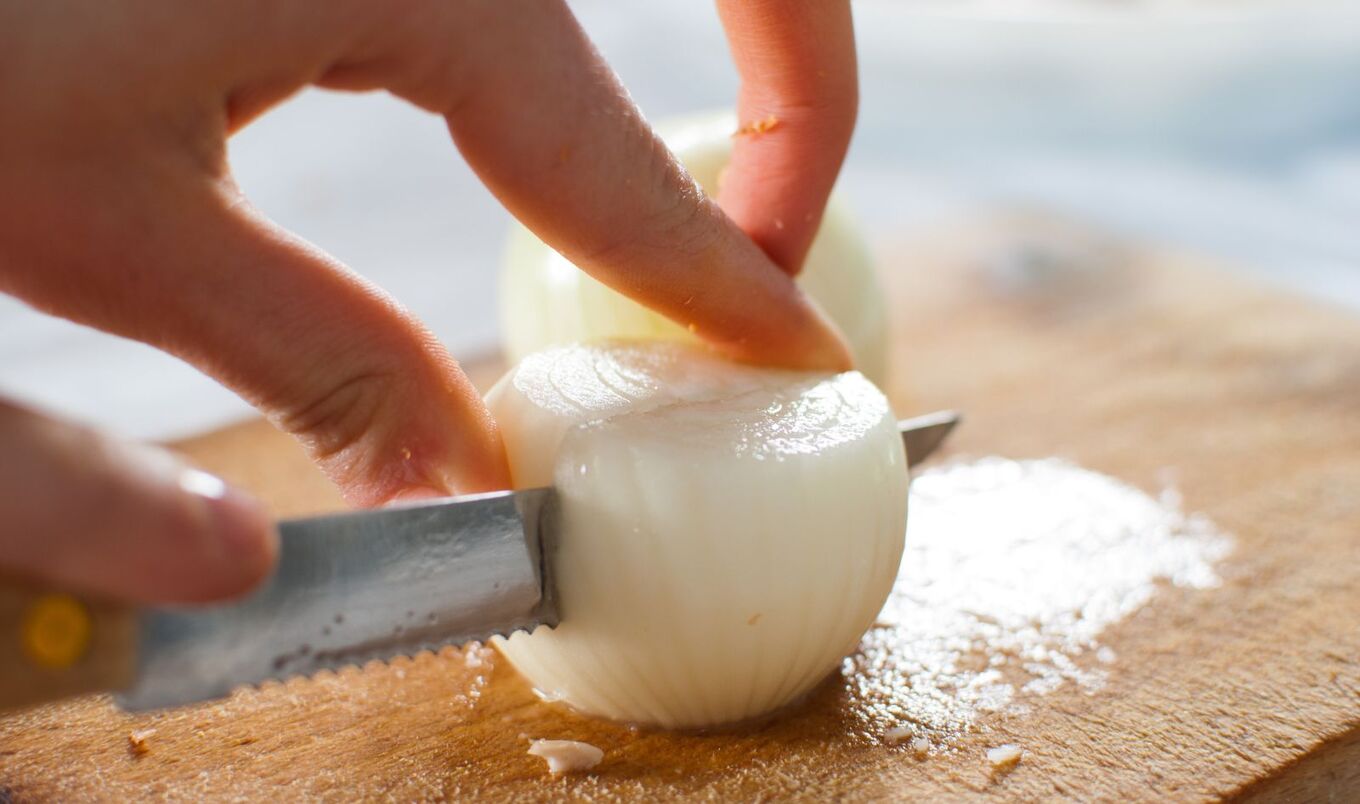 Getty
Getty
Replacing butter with plant-based fats, such as olive oil, offers a healthier alternative while preserving the rich texture and flavor of the dish. “Plant-based substitutes like olive oil or vegan butter can be excellent options here,” Angman says. “Olive oil, in particular, is a powerhouse for heart health with its high monounsaturated fat content. It can help lower LDL cholesterol while boosting the good HDL cholesterol.”
Vegan butters can also be suitable replacements, as many have less saturated fat compared to traditional butter. “I often suggest looking for vegan butters free of trans fats or enriched with omega-3s,” Angman adds.
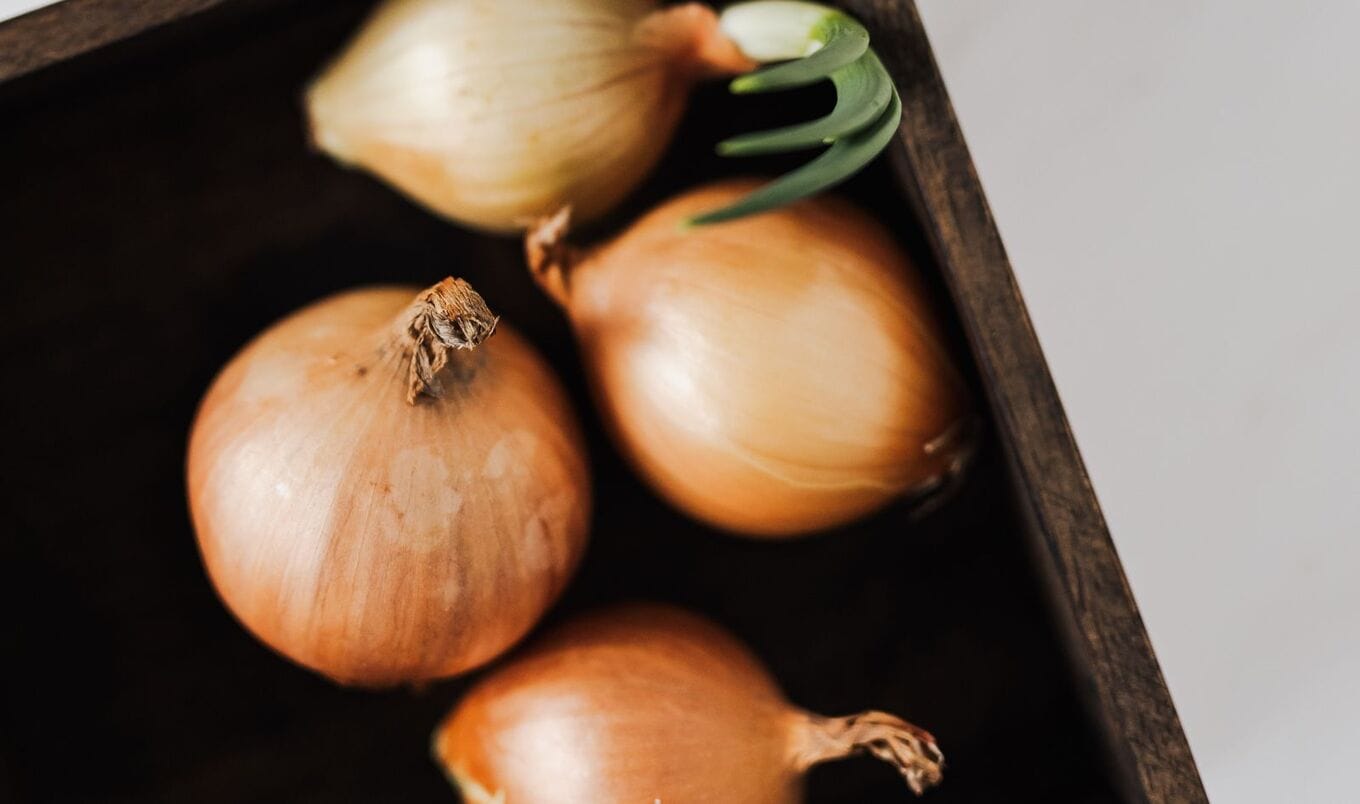 Pexels
Pexels
This swap doesn’t just make your roasted onion TikTok-worthy; it keeps things fun and lets you join the trend without overthinking the health details. Plus, the drizzle of olive oil makes those onions all the more Instagrammable—or, well, TikTok-able—with their glistening, golden edges.
And Angman agrees, saying: “These swaps are easy ways to enjoy recipes like this without compromising on flavor or health.”
How to make a plant-based onion boil
Adapting the onion boil to a plant-based version is a simple process. By substituting butter for healthier fats and using a variety of spices, this dish can be nutritious and satisfying. Here’s how to get started.
BECOME A VEGNEWS VIP: Get exclusive product deals, freebies, and perks galore!
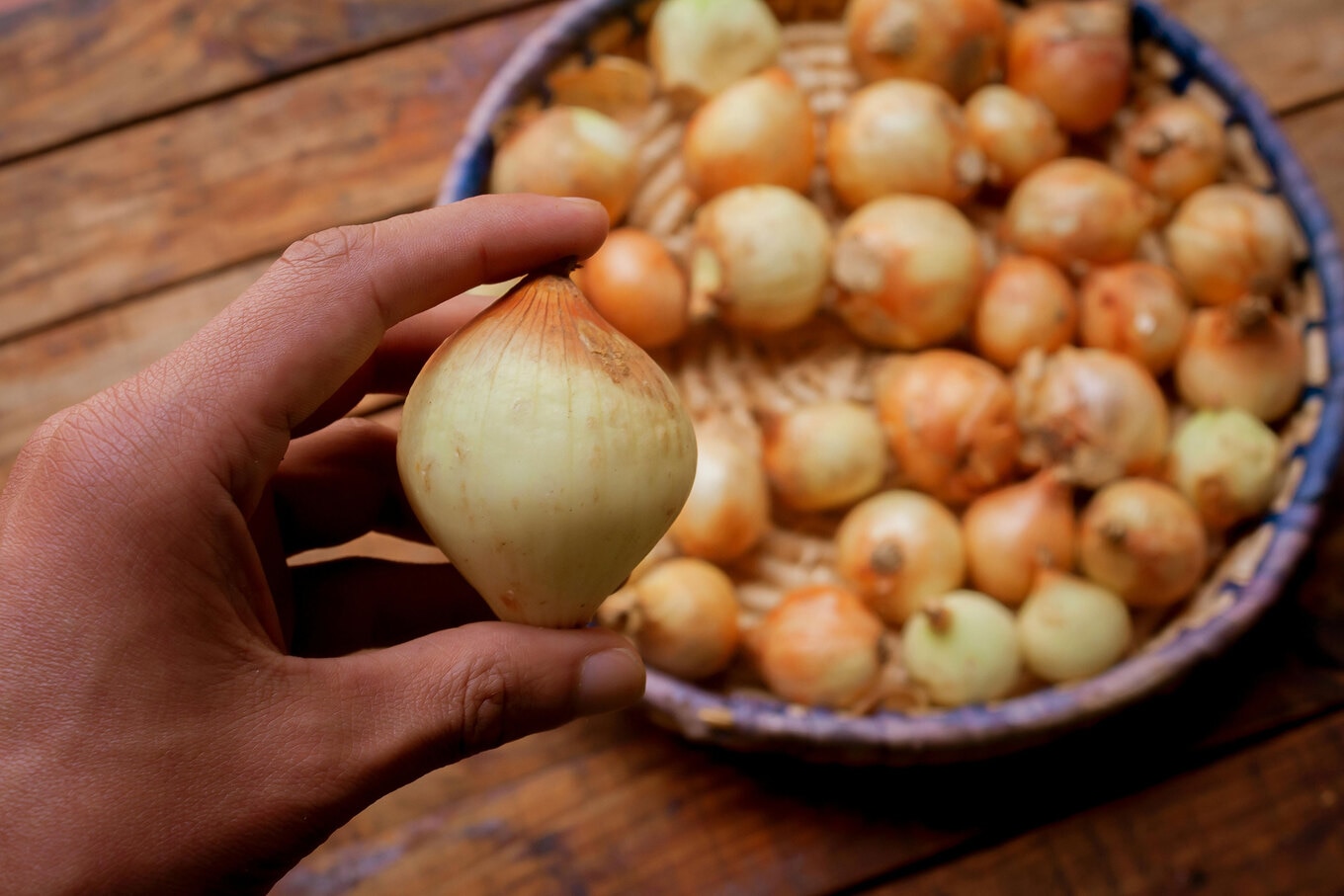 Pexels
Pexels
1Pick the right onion
Sweet onions such as Vidalia bring a mellow flavor, while red onions provide a sharper bite. Yellow onions offer a balance of sweetness and sharpness and caramelize beautifully.
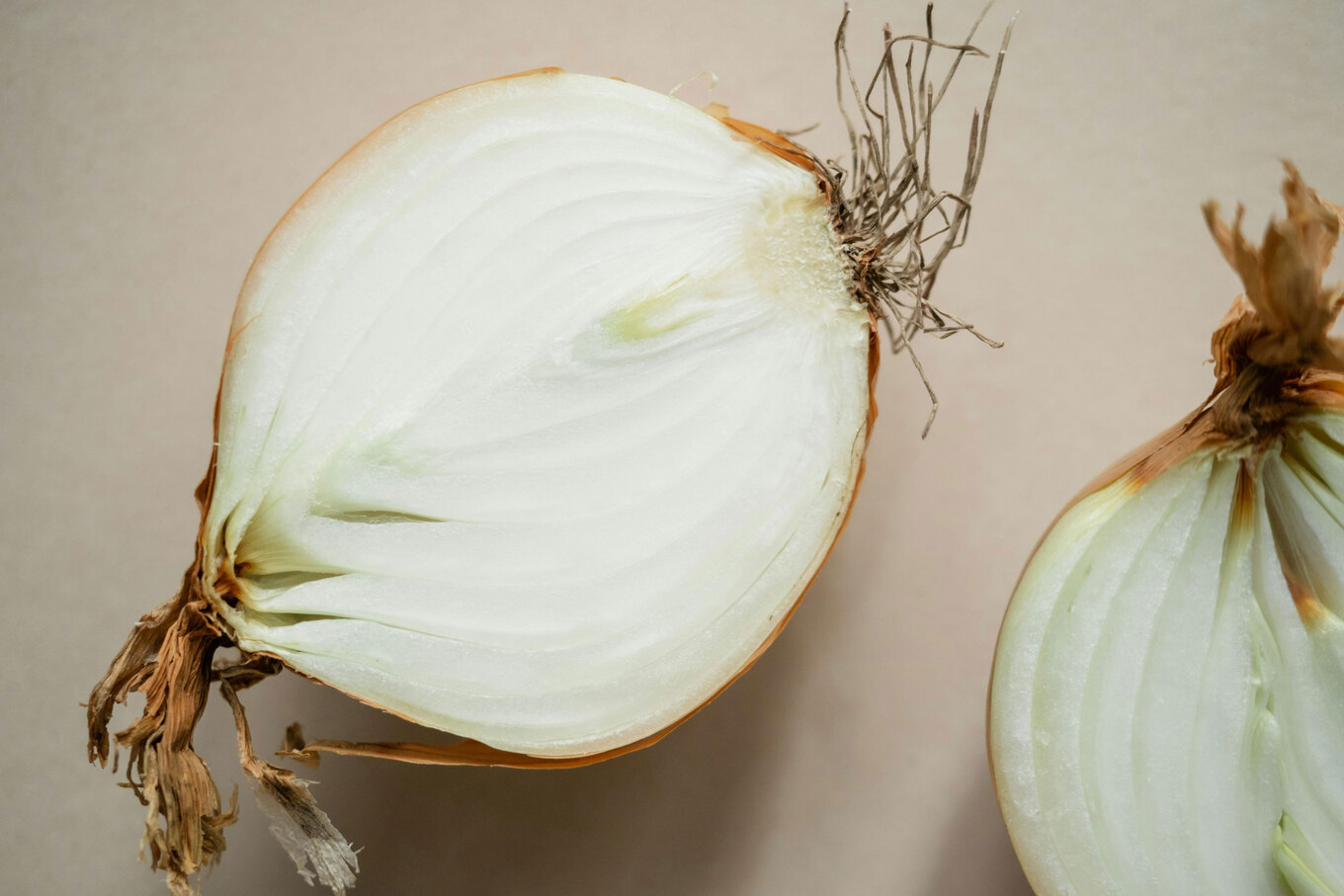 Pexels
Pexels
2Prep the onion
Remove the outer skin and lightly score and core the onion to allow seasonings to penetrate. Drizzle the onion with olive oil or fill the opening with another fat such as vegan butter.
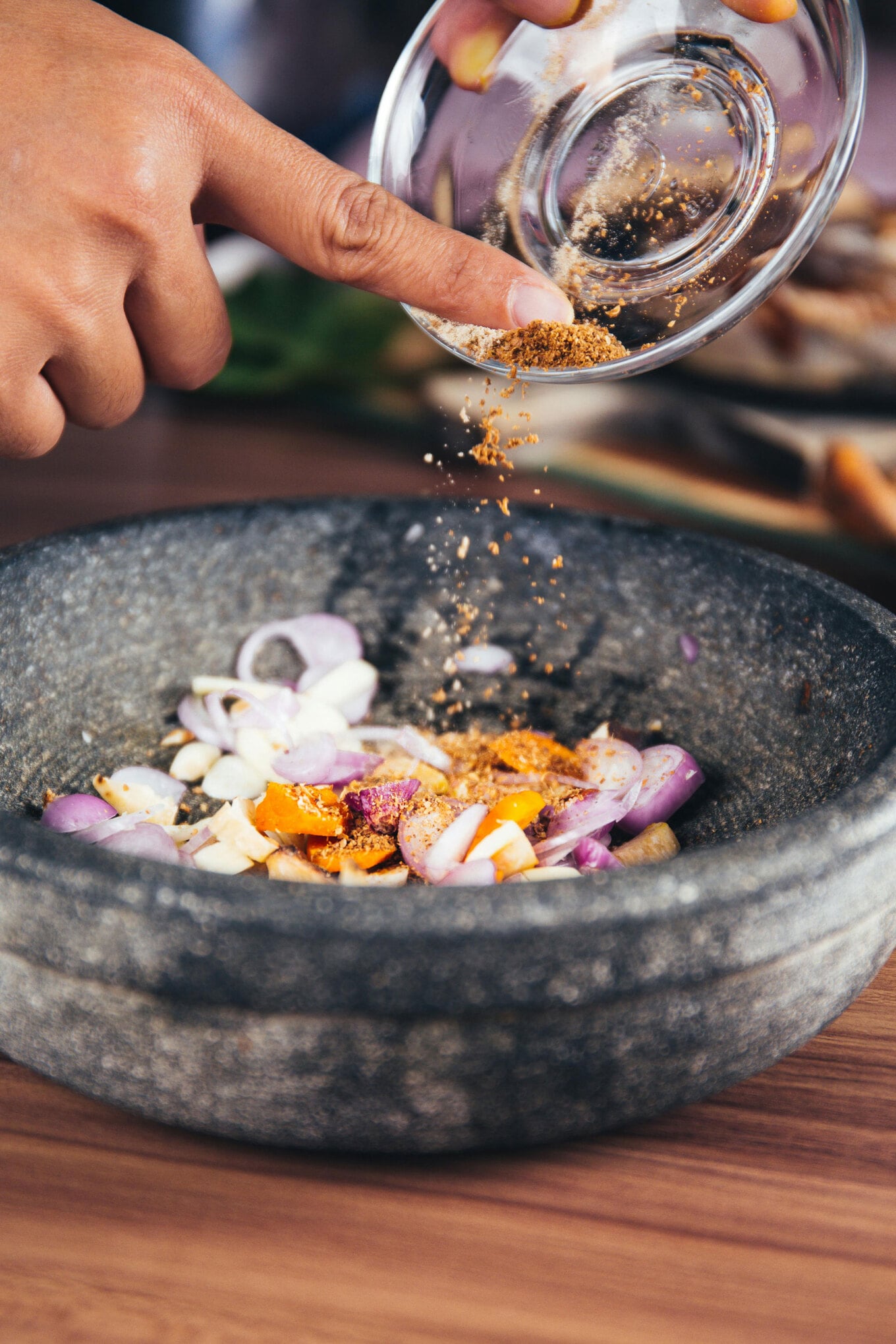 Pexels
Pexels
3Season generously
Popular seasonings include garlic powder, smoked paprika, and black pepper for a savory kick. For a global twist, try adding chaat masala or Cajun-inspired spices.
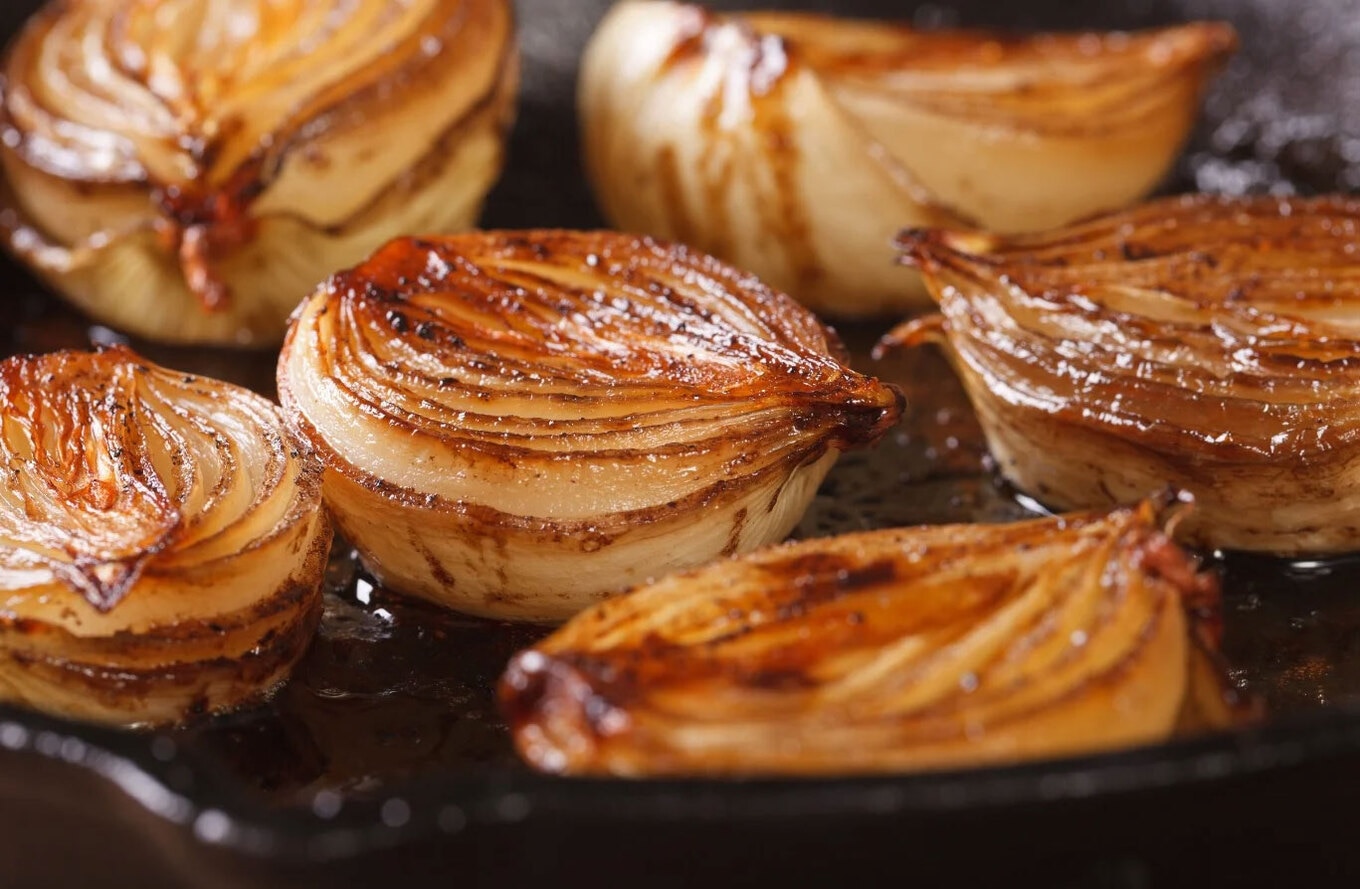 Getty
Getty
4Roast to perfection
Wrap the onion in foil to retain moisture, or leave the top open for a crispier edge. Roast at 350 degrees Fahrenheit for 25 to 45 minutes, depending on the size of the onion and desired tenderness.
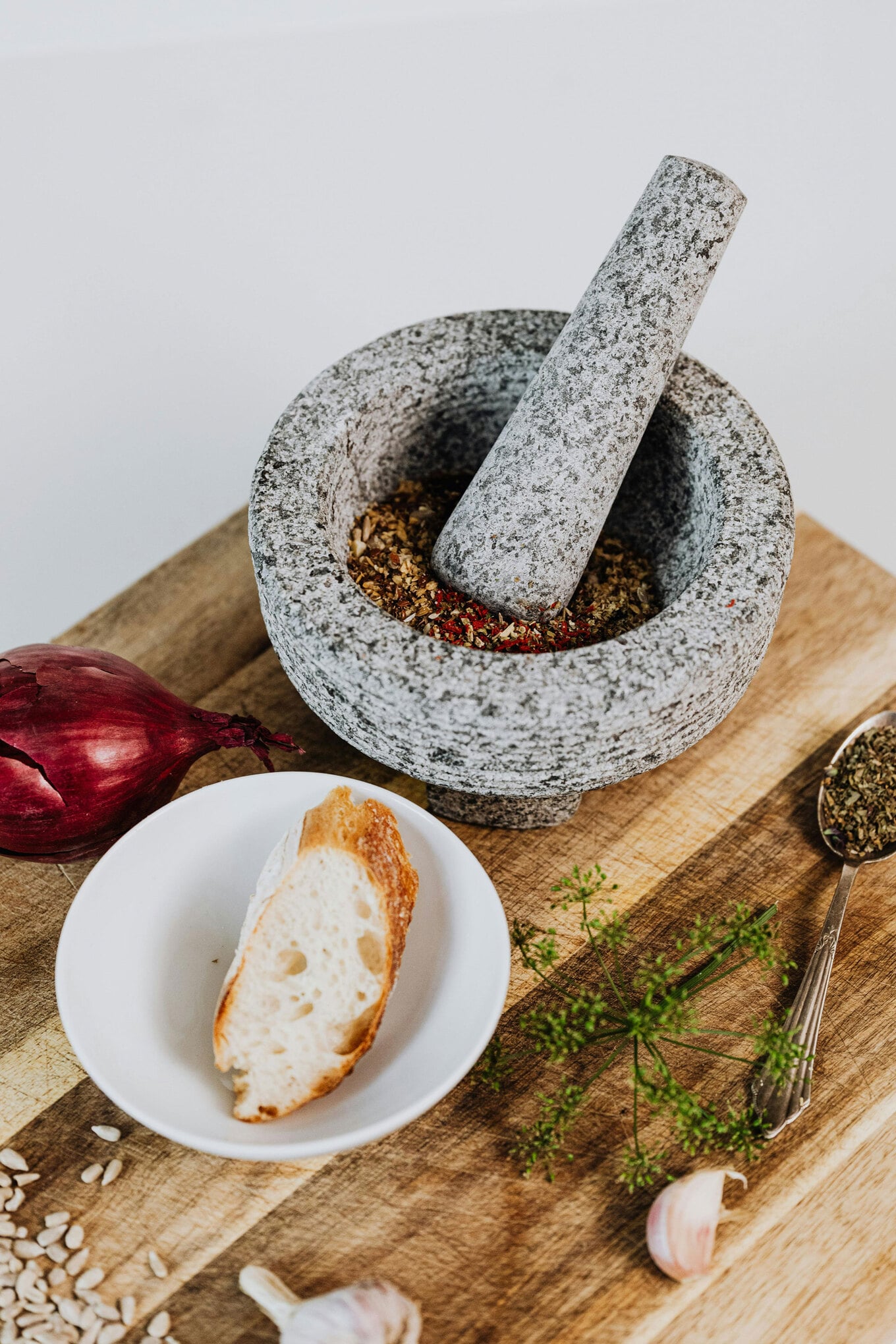 Pexels
Pexels
5Add a finishing touch
For added texture, sprinkle toasted breadcrumbs or crushed nuts over the onion before serving.
For more plant-based stories like this, read:
JUMP TO ... Latest News | Recipes | Guides | Health | Subscribe

